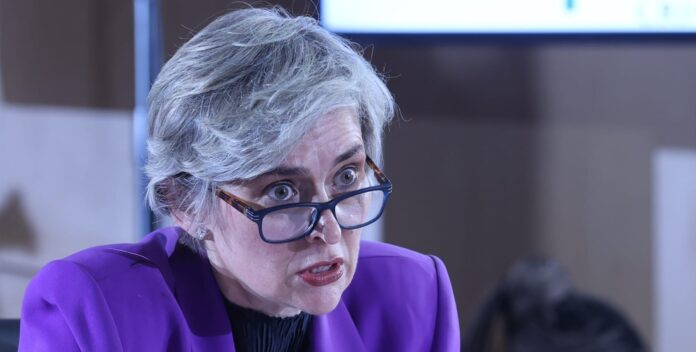The decision by Police Minister Senzo Mchunu, who is on special leave, to disband the KwaZulu-Natal SA Police Service (SAPS) political killings task team was unlawful and fell out of his mandate.
This was revealed by Major-General Petronella Margaretha van Rooyen, who is the head of governance, legislation, and policy at the legal services of the SAPS.
Van Rooyen was speaking on Thursday during the sixth day of the judicial commission of inquiry into criminality, political interference, and corruption.
The commission’s public hearings, chaired by retired Constitutional Court Justice Mbuyiseli Madlanga, are taking place at the Brigitte Mabandla Justice College in Pretoria.
During her testimony, Van Rooyen told the commission’s chief evidence leader, Advocate Terry Motau SC, that Mchunu’s decision to disband the task team in his letter dated December 31 2024, was an unlawful directive.
Deputy commissioners’ role
“The direction was not supported by any legal authority. It was bordering on the operations of the police service,” Van Rooyen said.
“The minister deals with policy issues and not the operations of the police service. It is the national commissioner of police who deals with operational issues.
“The decision by the minister to close the political killings task team fell outside his mandate and authority and strayed onto operational matters. The minister does not have legal powers to disband the task team.”
In addition, she said that according to South African legislation such as the South African Police Service Act, deputy national commissioners of police report directly to the national commissioner and not the police minister.
Van Rooyen said deputy national commissioners of police do not have the power to implement a police minister’s instruction without consulting the national commissioner of police.
On Monday and Tuesday, national commissioner of police General Fannie Masemola said suspended deputy national commissioner of police Lieutenant-General Shadrack Sibiya would sometimes report directly to Mchunu and not him, as mandated by SAPS laws and prescripts.
Masemola said Sibiya unlawfully issued instructions in January that the political killings task team should be immediately disbanded.
“Sibiya stated that he was issuing the instructions because he was acting on the minister’s [Mchunu’s] directive to immediately disband the task team. This instruction was unauthorised and improper conduct,” Masemola told the commission.
Van Rooyen is the commission’s third witness.
Mkhwanazi’s damning allegations
KwaZulu-Natal police commissioner Lieutenant-General Nhlanhla Mkhwanazi was the first witness. He concluded his three-day testimony last Friday.
The commission was established by President Cyril Ramaphosa on July 13 after Mkhwanazi’s explosive media briefing on July 6, where he said politicians in parliament, police officers, metro police officers, correctional service officials, prosecutors, and members of the judiciary are part of a criminal syndicate in Gauteng and are controlled by drug cartels and business people.
Mkhwanazi said Mchunu and Sibiya took a decision to disband the political killings task team because it raided the house of controversial Gauteng tenderpreneur and attempted murder-accused Vusimuzi “Cat” Matlala, and because the task team was making inroads in certain Gauteng cases.
The commission continues.




